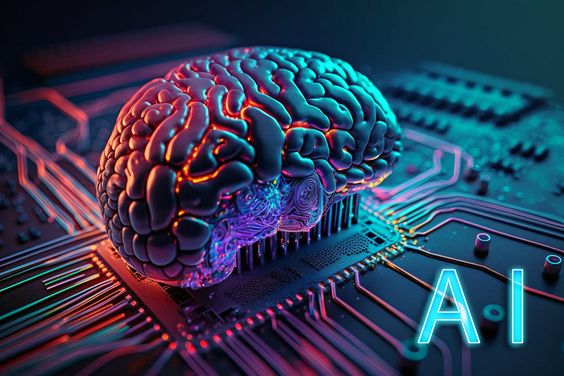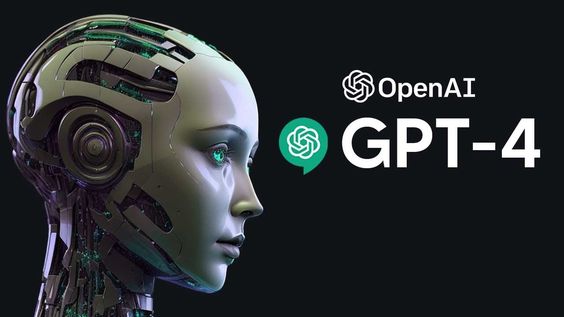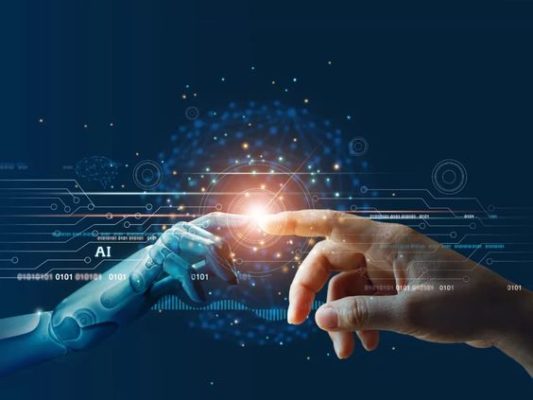Unraveling the Wonders of Artificial Intelligence: A Journey into the Future
Artificial Intelligence (AI) has permeated every aspect of life from industry to healthcare and education, opening up a world full of potential and challenges. This article will explore the latest discoveries in the field of AI and its impact on our daily lives.

Fundamentals of Artificial Intelligence:
Artificial intelligence, or AI, refers to the development of intelligent machines that can perform tasks that typically require human intelligence. The concept of AI has been around since the 1950s, when researchers began exploring ways to create machines that could think and learn like humans.
The early days of AI were marked by groundbreaking research and experimentation, with scientists developing computer programs that could play games and solve complex problems. One of the key milestones in the history of AI was the creation of the first artificial neural network in 1958, which laid the foundation for modern machine learning algorithms.
As technology advanced, so did the capabilities of AI systems. In the 1980s and 1990s, researchers began developing expert systems that could mimic the decision-making processes of human experts in various fields. This led to the development of AI applications in areas such as healthcare, finance, and manufacturing.
In recent years, the field of AI has seen unprecedented growth and innovation, with advancements in deep learning, natural language processing, and computer vision. These technologies have enabled the development of AI-powered systems that can recognize speech, analyze images, and even drive cars autonomously.
Today, AI is being used in a wide range of applications, from virtual assistants like Siri and Alexa to self-driving cars and predictive analytics. As researchers continue to push the boundaries of what is possible with AI, the field is poised to revolutionize industries and change the way we live and work in the future.
Applications of AI in Industry and Business:
Artificial Intelligence (AI) has revolutionized the way industries and businesses operate by streamlining processes, improving efficiency, and enabling data-driven decision-making. In the manufacturing sector, AI has been instrumental in optimizing production processes, predicting equipment failures, and enhancing quality control. By analyzing vast amounts of data in real-time, AI algorithms can identify patterns and anomalies that human operators may overlook, leading to more efficient operations and reduced downtime.
In the retail industry, AI has transformed the way companies interact with customers, personalize marketing strategies, and optimize inventory management. Through the use of machine learning algorithms, retailers can analyze customer preferences, behavior, and purchase history to tailor personalized recommendations and promotions. AI-powered chatbots and virtual assistants have also been widely adopted to provide real-time customer support and enhance the overall shopping experience.
In the financial sector, AI has been used to detect fraudulent activities, automate routine tasks, and make more accurate predictions in investment strategies. By analyzing market trends, economic indicators, and historical data, AI algorithms can assist financial institutions in making informed decisions and managing risks more effectively. Additionally, AI-powered robo-advisors have gained popularity in providing personalized investment advice and managing portfolios for individual investors.
In the field of marketing, AI has revolutionized the way companies target and engage with customers through personalized campaigns, predictive analytics, and sentiment analysis. By analyzing social media data, website traffic, and customer feedback, AI algorithms can identify trends, preferences, and sentiments to optimize marketing strategies and improve customer engagement. Additionally, AI-powered tools such as programmatic advertising and chatbots have been used to automate marketing tasks and provide personalized interactions with customers.
Overall, the applications of AI in industry and business have transformed the way we work and manage by enabling automation, enhancing decision-making, and improving efficiency across various sectors. As AI continues to advance, businesses will need to adapt and embrace this technology to stay competitive in an increasingly data-driven and interconnected world.
Artificial Intelligence in Healthcare:
Artificial Intelligence (AI) has revolutionized the healthcare industry, playing a crucial role in transforming the way diseases are diagnosed, treated, and managed. From enhancing medical imaging technology for more accurate diagnoses to facilitating drug discovery processes, AI has brought about significant advancements in the field of medicine.
One of the key areas where AI has made a substantial impact is in disease diagnosis. With the help of machine learning algorithms, AI can analyze vast amounts of patient data and medical images to identify patterns and detect diseases at an early stage. This not only speeds up the diagnostic process but also improves the accuracy of diagnoses, leading to better treatment outcomes for patients.
Furthermore, AI has also been instrumental in drug discovery, a process that traditionally takes years and millions of dollars to complete. By leveraging AI algorithms, researchers can sift through massive datasets to identify potential drug candidates more efficiently. This not only accelerates the drug discovery process but also reduces costs and increases the likelihood of finding successful treatments for various diseases.
In addition to diagnosis and drug discovery, AI is also being used in personalized medicine, where treatments are tailored to individual patients based on their genetic makeup and other factors. By analyzing patient data and medical records, AI algorithms can help healthcare providers make more informed treatment decisions, leading to better outcomes and improved patient care.
Overall, the integration of AI in healthcare has opened up new possibilities for improving medical practices and advancing the field of medicine. As technology continues to evolve, we can expect AI to play an even greater role in healthcare, shaping the future of medicine and ultimately benefiting patients worldwide.
AI and the Technological Revolution:
The technological revolution brought about by artificial intelligence (AI) has had a profound impact on various industries and sectors, reshaping the way we live, work, and interact with the world around us. AI has the potential to revolutionize the way we approach problem-solving, decision-making, and innovation across a wide range of fields.
One key aspect of the AI revolution is its interconnectedness with other cutting-edge technologies such as blockchain, Internet of Things (IoT), and machine learning. These technologies work in tandem to create a powerful ecosystem that drives innovation and efficiency in various industries.
Blockchain technology, for example, has the potential to enhance the security and transparency of AI systems by providing a decentralized and immutable ledger for recording and verifying transactions and data. This can help to build trust and accountability in AI systems, ensuring that they operate in a fair and ethical manner.
IoT devices, on the other hand, can collect vast amounts of data that can be analyzed and processed by AI algorithms to extract valuable insights and drive informed decision-making. The integration of AI and IoT technologies can enable the development of smart systems and connected devices that can automate processes, optimize resource allocation, and improve overall efficiency.
Machine learning, a subset of AI, plays a crucial role in enabling AI systems to learn from data and improve their performance over time. By leveraging machine learning algorithms, AI systems can adapt to changing environments, make predictions, and optimize outcomes in real-time.
Overall, the relationship between AI and other technologies such as blockchain, IoT, and machine learning is symbiotic, with each technology complementing and enhancing the capabilities of the others. As we continue to harness the potential of these technologies, we can expect to see even greater advancements in AI and the emergence of innovative solutions that will shape the future of our society.
Challenges and Prospects:
Artificial Intelligence (AI) has rapidly advanced in recent years, revolutionizing various industries and transforming the way we live and work. However, along with its numerous benefits, AI also presents a host of ethical, legal, and cybersecurity challenges that must be carefully addressed.
One of the primary ethical concerns surrounding AI is the issue of bias and discrimination. AI systems are often trained on biased data sets, leading to discriminatory outcomes in areas such as hiring, lending, and law enforcement. Ensuring that AI systems are fair and unbiased requires careful attention to data collection, algorithm design, and ongoing monitoring.
Another ethical challenge posed by AI is the potential for job displacement and economic inequality. As AI technologies automate tasks traditionally performed by humans, there is a risk of widespread job loss and widening income disparities. Addressing these challenges will require innovative solutions, such as retraining programs and policies to support workers in transitioning to new roles.
In addition to ethical concerns, the legal implications of AI are also complex and multifaceted. Questions of liability, accountability, and intellectual property rights must be carefully considered as AI systems become more autonomous and make decisions with far-reaching consequences. Ensuring that laws and regulations keep pace with AI advancements will be crucial in protecting individuals and society as a whole.
Furthermore, cybersecurity is a critical concern in the age of AI, as hackers and malicious actors seek to exploit vulnerabilities in AI systems for their own gain. Protecting sensitive data and ensuring the security of AI systems will require robust cybersecurity measures, including encryption, authentication, and regular security audits.
Despite these challenges, the prospects for AI are bright, with the potential to revolutionize healthcare, transportation, and other sectors in ways that improve efficiency, productivity, and quality of life. By addressing the ethical, legal, and cybersecurity challenges posed by AI, we can harness its transformative power while safeguarding against potential risks.
Artificial intelligence continues to drive the development and transformation of our world. By gaining a deeper understanding of the potential and challenges of AI, we can harness its benefits and address the issues arising from this progress.




